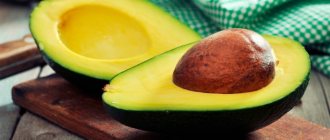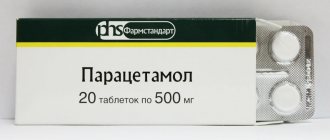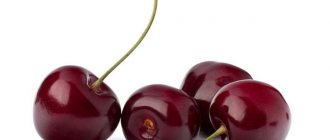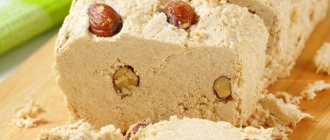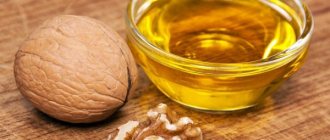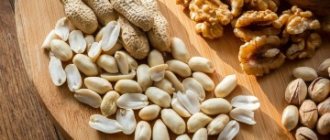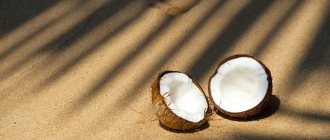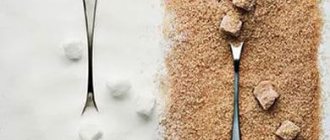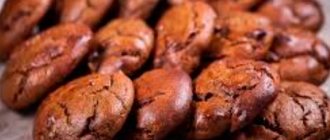Peanuts during breastfeeding
Doctors do not recommend taking peanuts to mothers who have established lactation. Despite this, there is also no absolute ban on it. Due to the fact that peanuts contain a large amount of protein of plant origin, doctors, of course, advise eating them. The only caveat concerns the amount of nuts consumed, as they can cause increased gas production in the baby. In addition, experts recommend limiting the intake of peanuts until the child reaches the age of three months (especially for raw nuts).
Reviews from moms
Inna, 29 years old, Novosibirsk
I am very pleased with the effect of the nut on my body. I ate it even before pregnancy. After the baby was born, I continued to eat peanuts.
My child had no side effects, and his body, in my opinion, was saturated with useful substances.
Julia, 26 years old, Ekaterinburg
The doctor advised me to eat peanuts after the birth of my child. I didn’t feel any changes in my body from the nut.
The only good thing was that neither I nor my baby had any allergic reactions.
Ekaterina, 25 years old, Nizhny Novgorod
I do not advise anyone to eat peanuts while breastfeeding newborn babies. I developed a terrible allergy after eating this nut.
After several weeks, my child was diagnosed with problems with his digestive tract. Everything stabilized only after I stopped eating nuts.
Benefits and harms for nursing mothers
The benefits of the nut include:
- Fills the body of a nursing mother with nutrients;
- With regular inclusion of this nut in the diet, the condition of the skin significantly improves and its elasticity increases. This is especially true during lactation;
- Due to the large amount of protein in the composition, it has a positive effect on milk production;
- Allows you to relieve the stress of a woman in labor, normalizes the nervous system of a young mother;
- Able to strengthen blood vessels;
- Eliminates iron and copper deficiency, which in turn normalizes hemoglobin levels in the blood.
- Has natural antioxidant properties.
Despite the positive properties of peanuts, it is better to avoid uncontrolled consumption of peanuts. Especially during breastfeeding. The product is a strong allergen and affects not only the mother, but also the baby.
According to scientific research, if a mother did not have allergic reactions to peanuts before pregnancy, this does not mean that her baby will not have problems after birth. A newborn may experience a rash and digestive tract upset (severe gas formation). The situation is especially dangerous when anaphylactic shock occurs. Therefore, nut consumption during breastfeeding should be limited.
Peanuts are also a fairly heavy food. After childbirth, the body of a nursing mother does not always cope with such a load. As a result, problems arise with internal organs (the liver, kidneys, and stomach suffer). Due to the fact that peanuts are difficult to digest, the unexcreted product also has a negative effect on the child’s body. Therefore, it is recommended to include nuts not in raw form, but as an addition to main courses and salads. In this form, it is better absorbed by the body.
About peanuts and their beneficial qualities
Diet during breastfeeding is a very delicate issue, since everything a mother eats affects the composition of her milk. Nuts, in particular peanuts, serve as a source of vegetable proteins and fats, vitamins, amino acids, micro- and macroelements. They help the mother’s body recover more quickly after childbirth and maintain health, which is so necessary during lactation, and also saturate the milk with useful substances. And the answer to the question, is it possible to breastfeed peanuts, will be unequivocal - it is possible and even necessary. But in moderation and only if they do not cause an allergic reaction in the mother and the newborn.
In our understanding, peanuts are not a nut at all and they grow not on trees, but underground
Peanuts (another name for groundnuts) are not actually nuts - the plant is a legume. Under natural conditions, it grows in South America, but as an agricultural crop it has adapted well to the climate of Asia and Africa, and some areas of North America.
Today, its main exporters to the world market are China and India.
Peanut is an annual plant; it is a low-growing shrub with a branched stem. The fruits are hidden in pods similar to beans or peas. They ripen in the ground. The nuts are oval in shape and yellowish in color, covered with a thin dark red shell. The plant is called a nut because the way it is eaten is similar to how most nuts are eaten - raw or roasted.
The calorie content of the raw product is 550 Kcal/100 g, frying adds almost 100 Kcal - it turns out to be approximately 630 Kcal/100 g.
Peanuts consist mainly of vegetable fats (up to 50%) and proteins (proteins) (35%), carbohydrates account for only 10%. Contains many vitamins of groups A, B, E, D, PP; microelements - magnesium, calcium, potassium, iron, copper and manganese; amino acids. Plus, polyphenols are substances with powerful antioxidant properties.
7 beneficial properties of groundnuts
1 Amino acids in peanuts have a positive effect on blood cholesterol, promote productive absorption of calcium, and tissue regeneration, in particular the skin. They also help to establish normal production of hormones and enzymes.
2 Vitamins A and E have a beneficial effect on the cardiovascular system, reduce the risk of oncology and the appearance of malignant neoplasms. In addition, they are very important for restoring elasticity and firmness to the skin, which is important after childbirth.
3 Folic acid helps improve the functioning of the liver and participates in the processes of cell renewal of all tissues of the body.
4 Magnesium in its composition promotes renewal of the body and removes toxins. In addition, magnesium, together with calcium and fluorine, makes bones, as well as hair and nails, stronger.
5 Manganese has a beneficial effect on lipid metabolism, helps maintain the normal functioning of the nervous system and has a positive effect on brain activity - improves attention and memory. Peanuts during breastfeeding are very necessary for the mother's body, since a normal level of manganese helps to cope with neuroses, depression , and get out of a state of exhaustion.
6 The product affects the production of tryptophan - a substance that provides complete restorative sleep. In addition, tryptophan promotes the release of serotonin - the “happiness hormone”. Thus, consuming it regularly will help maintain a good mood.
7 Nuts are rich in iron and very nutritious - this is a natural way to help the body recover after childbirth, increase hemoglobin and improve blood clotting.
How to protect yourself from allergies?
To protect yourself from the risk of allergies, you should study genealogy (not only through your own line, but also through the line of the child’s father). If you find out that one of your close relatives is allergic to peanuts, then its use should be postponed until a later time. A child should not be given nuts until they are three years old.
You can also follow a number of recommendations:
- Take a nut allergy test. But it is worth considering the fact that the child is an individual person, so if the mother does not have a reaction to peanuts, this does not mean that the baby will not have the same. Due to the fact that the husk of the nut is the most allergenic, it must be peeled off before use;
- Record your child's reaction to the nut. If there is none, calmly add peanuts to your diet (in reasonable quantities).
Therefore, the following categories of women should consume peanuts:
- Who has no reaction to the nut; Who ate peanuts during pregnancy (there was no feeling of discomfort);
- If there are no people in the family who suffered (suffer) from a peanut allergy. Also, the baby should not show a reaction to groundnuts.
If these points are satisfied, it indicates the possible inclusion of this product in the diet.
Introduction of the product into the diet
It is recommended that a nursing mother try peanuts, starting with a minimum amount. Two hours before feeding, you need to eat 1-2 nuts and monitor the baby throughout the day - this is how long it will take the body to react to peanuts. You should stop eating groundnuts if the following signs are detected within 24 hours:
- the appearance of red spots on the baby’s body;
- a pronounced rash all over the body, especially on the cheeks;
- the appearance of colic and bloating;
- problems with stool.
The most dangerous form of an allergic reaction is anaphylactic shock. If a child has difficulty breathing, turns pale, or loses consciousness, you should immediately call an ambulance.
Usage rate
When adding peanuts to a nursing mother's menu, you should consider the quantity (as well as its quality) consumed. It is allowed to eat no more than 50 - 100 grams of nuts per day, and during the week the number of days when peanuts were consumed should not exceed two or three.
Remember that if any allergic reaction occurs, you must immediately stop eating the nut, and repeat the possibility of including it in your diet no earlier than a month later.
How to use
Peanut husks are the most allergenic, so nursing mothers need to peel them.
It is necessary to gradually introduce peanuts into a woman’s diet. Initially, she is advised to eat a few nuts. If she and the child have no allergic reactions or other manifestations, then the amount of nut consumed the next day can be increased. The maximum daily dose of peanuts for a nursing woman is 100 grams .
You should not abuse this product, as it can negatively affect the health of the baby and the mother herself.
It is not recommended for women to consume salted peanuts, which is explained by the excessive load on the digestive system. This can lead to the development of various diseases of the stomach and liver in the child.
In accordance with research by scientists, it was found that newborn children often experience allergic reactions to foods that the mother’s body cannot tolerate.
At the initial stage of introducing them into the diet, it is recommended to eat absolutely all nuts separately . This will allow you to promptly identify the product to which an allergic reaction occurs and eliminate it from your diet.
Artur Isaev, city hospital No. 2, Yekaterinburg, family doctor
I always recommend that women only eat nutritious food while breastfeeding their newborns.
In this case, they must definitely eat peanuts, which is explained by their beneficial properties.
The fairer sex is recommended to consume meat and fish to compensate for the lack of protein. To saturate the body with vitamins, you need to eat berries and fruits every day, except citrus fruits. What fruits are allowed and what is prohibited for a nursing mother is indicated in more detail in our other article.
Peanuts are a rather insidious product and can lead to allergic reactions. That is why its use should be carried out with the utmost caution.
Contraindications for use
The main contraindications to eating peanuts during breastfeeding include:
- Personal intolerance to nuts;
- Predisposition to allergies;
- Overweight;
- Manifestations of diabetes mellitus;
- Joint diseases (arthritis, arthrosis);
- Varicose veins
In relation to the baby, contraindications for the mother to eat peanuts include insufficient weight of the newborn, problems with internal organs, allergic manifestations, lactose and gluten intolerance.
Benefit
Peanut:
- contains a huge amount of useful substances: fats, proteins, vitamins B, A, E, C, D;
- improves the condition of the skin, increases its elasticity, thanks to the content of large amounts of vitamins A and E. Most women need this when breastfeeding;
- contains a lot of valuable vegetable protein, which is very useful during lactation;
- calms, relieves stress, helps cope with nervous overload thanks to the balance of potassium, magnesium and B vitamins;
- strengthens blood vessels, increases the elasticity of their walls. Of course, it does not cure varicose veins. But as one of the means of prevention it is quite suitable;
- due to the high content of iron and copper, it raises hemoglobin well, which is important for many pregnant and lactating women;
- has antioxidant properties. Protects the body from the destructive effects of free radicals and breakdown products.
In what form will peanuts be useful for breastfeeding?
Peanuts can be consumed in any form. It all depends on its quality and the presence of contraindications for use.
Raw
You should refrain from eating raw nuts while breastfeeding. It puts a strong strain on the gastrointestinal tract of both mother and child (causing constipation, bloating, colic, cramps).
Fried
During lactation, it is better to eat roasted nuts. It is better to do this in the first half of the day (to reduce the load on the liver and stomach). The peel from the nut must be removed.
Salty
It is better not to eat salted peanuts. After all, it is capable of retaining fluid in the body, which leads to edema. It is also worth limiting the intake of peanuts with various flavoring additives and extraneous aromas.
Peanut paste
Peanut butter was invented in Canada. They are widely used as a substitute for high-calorie chocolate spreads. It also differs from other products because it contains more useful microelements and vitamins. Mothers who have recently given birth and are breastfeeding their baby are wondering: “Can a nursing mother eat peanuts?”
Doctors are of the same opinion as with regard to peanuts in their usual form. If there are no contraindications for taking it, there are no allergic reactions, then the mother can try introducing the nut into her diet. It is advisable to start doing this not in the first month of the child’s life, but starting from three. In addition, you need to consume no more than 20-50 grams of paste per day.
The product should be introduced into the diet of a woman who continues to breastfeed gradually, and the reaction to the product in the newborn should be constantly monitored. Peanut butter during breastfeeding leads to rapid weight gain in the mother.
What can you make from peanuts?
Peanut kernels can be added to fresh salads, or you can make delicious homemade pasta without preservatives.
Fresh peanuts can be dried in the oven or in a frying pan, but without oil. This will extend its shelf life and make it easier to remove the husks. To ensure that nuts are better absorbed and do not cause irritation, they can be added to fresh vegetable salads.
Delicious and nutritious peanut butter can be easily prepared at home without worrying about the possible content of preservatives and dyes.
You will need to grind the peeled nuts in a blender and add a little vegetable oil, salt or sugar to taste.
According to nutritionists, boiled peanuts bring the maximum benefit - they contain 4 times higher antioxidant content than fresh ones.
Harmful properties of the product
Peanuts, also called groundnuts, are legumes and are a source of vegetable protein. In addition, the product contains a large number of valuable microelements necessary for the normal functioning of the human body.
The benefits of peanuts during natural feeding of an infant are:
- improving skin condition, increasing its elasticity;
- increasing the nutritional value of breast milk;
- strengthening vascular walls, ensuring their elasticity;
- prevention of varicose veins;
- maintaining the health of the central nervous system;
- eliminating stressful and depressive conditions;
- therapy and prevention of anemia;
- increasing the level of hemoglobin in the blood;
- protecting body cells from the negative effects of free radicals.
Despite the fact that peanuts during lactation bring many benefits to the body of the mother and baby, it can also have a negative effect on their health. This product is a strong allergen; the highest concentration of allergic elements is contained in its shell. Adverse reactions to groundnuts are rare, but it is impossible to determine in advance how a newborn will react to such food.
After allergens enter the baby’s body, the following may appear:
- skin rashes;
- redness;
- disruptions in the functioning of the digestive system (stool disorders, colic, increased accumulation of intestinal gases);
- anaphylactic shock;
- epigastric pain.
If painful symptoms occur, especially a life-threatening condition (anaphylactic shock, difficulty breathing), you should immediately call an ambulance.
Possible harm of peanuts and peanut butter during breastfeeding:
- Mother's milk is a fatty, nutritious product. After consuming nuts, the fat content of baby food increases, which can lead to upset bowel movements and colic in the baby.
- Nuts are a heavy food. Children's gastrointestinal tract may not be able to cope with the digestion and absorption of such food.
- Eating peanuts can cause an allergy, which most often manifests itself in the form of itchy skin rashes, but a more dangerous condition, anaphylactic shock, can develop.
Before use, the product must be cleared of husks, the concentration of allergens in which is extremely high.
Pediatricians strongly discourage young mothers from eating fried and salted peanuts while breastfeeding. This is due to several factors:
- Peanuts are considered an allergic product that can cause an undesirable reaction in both adults and children.
- Peanuts are a heavy food. The weakened children's digestive tract cannot properly digest and assimilate it, as a result of which the functioning of the baby's gastrointestinal tract is disrupted.
- Salt can cause swelling and worsening kidney function.
- Roasted peanuts in oil have a negative impact on the digestive system of a newborn. As a result, stool upset, intestinal spasms, increased gas formation, a feeling of nausea and even vomiting may occur.
- Also, the food in question has a fairly high calorie content, and heat treatment by frying increases this figure.
Important! The largest number of allergens are contained in the husk, so it is necessary to peel the nut before consumption.
It is allowed to consume raw peeled peanuts no earlier than 3 months after the birth of the baby. It is best to add this product to various dishes, so it is better absorbed by the body.
Sherbet is an oriental sweet, which in our latitudes is known as fudge. You can find nuts or dried fruits in it. In a more traditional version, it is a drink or ice cream. We still know it as something similar to candy, so let’s talk about this delicacy.
Natural sherbet is rich in vitamins, minerals and other beneficial substances, so it is wrong to say that a nursing mother should not eat it. It is important to understand that the treat contains many components, most of which are included in the list of allergens. Therefore, treats should be introduced into the diet and eaten carefully.
Before eating sorbet, it is better to taste its ingredients separately. If you immediately eat a dish consisting of a large number of components to which you do not know the baby’s reaction, you will not be able to find out what caused a negative reaction if it occurs.
It is recommended to try sherbet for the first time at 3–6 months, starting with a small piece. Do the test in the morning. Allergies or other negative reactions usually appear within 1–2 days. If you have not tried all the ingredients before the first tasting, observe your child for about a week. If everything went well, you can gradually increase the portion. As with other sweets, you should limit the maximum amount to 50 grams of treats per day. Don't eat sherbet every day.
You can read about other treats for nursing mothers in the article “What sweets are possible while breastfeeding.”
Mother's nutrition in the first month after birth is especially important. The baby's gastrointestinal tract adapts to the new type of nutrition. All foods that mother eats pass into breast milk. The child’s body is not ready to immediately digest a lot of new components, which can cause various negative reactions. In order to avoid such consequences, a nursing mother should eat the most gentle foods that are not on the list of allergens and are easy to digest.
In the first months after childbirth, it is not recommended to eat sherbet with additives.
With peanuts
Peanuts are a healthy nut that is included in the list of the strongest allergens. Even a few nuclei can provoke an acute allergic reaction, leading to anaphylactic shock. Therefore, it is recommended to introduce peanut sherbet into the mother’s diet last when breastfeeding. It is best not earlier than 4-5 months after birth.
There are many types of sherbet. Their properties are slightly different. The product is rich in vitamins and minerals. The following beneficial properties of the delicacy can be highlighted:
- lifts the mood;
- helps with stress and depression;
- improves the functioning of the heart and blood vessels;
- increases hemoglobin levels;
- improves liver and kidney function;
- strengthens bones and teeth;
- prevents certain types of cancer;
- helps with oral diseases;
- replenishes vitamins and minerals in the body;
- improves the functioning of the reproductive system, etc.
Despite the fact that the product is so healthy, consuming sherbet can be harmful to the body. It contains a large amount of sugar, so the product is prohibited for people with diabetes. Excessive consumption can lead to weight gain and problems with tooth enamel. The product is prohibited for obesity.
It is forbidden to eat sherbet if you have diseases of the pancreas and liver. The treat contains many components that can provoke an allergic reaction in a baby. In addition, high sugar content can cause colic and other tummy problems in the baby.
Each organism is individual, so the same product can bring both benefit and harm. Many people are allergic to peanuts. Thanks to research by allergists, it is known that there is a large proportion of people who have a reaction to this nut. It is important to know that even if the mother does not have an allergy, the child may develop one.
Allergies can manifest as rashes or intestinal problems. Its most terrible consequence is anaphylactic shock, which is extremely dangerous to human health. Therefore, you should definitely ask your doctor if nursing mothers can take peanuts.
It must be remembered that nuts are quite a heavy food. Groundnuts are rich in fats and proteins, so they actively affect the gastrointestinal tract. During the period of recovery of the body after pregnancy, if the mother has problems with the kidneys or stomach, then it is better to abstain from nuts. When breastfeeding, nuts should be used as an addition to any dish, and not eaten separately. This way they will be better absorbed by the body without causing irritation to the gastric mucosa.
Many people are allergic to peanuts. Even if a nursing mother does not have an allergy, the child may develop one!
If a girl ate peanuts during pregnancy and there was no reaction, then the baby is unlikely to have an allergy. Many nutritionists recommend roasting peanuts before eating, this will destroy all allergens. You should also take into account that a significant number of allergens are contained in the red peel, so it is better to peel the peanuts before eating.
Symptoms of peanut intolerance include:
- red spots on the skin;
- redness of the elbows, face, hands;
- the functioning of the digestive system is disrupted;
- irregular bowel movements;
- strong gas formation.
To be on the safe side, ask your relatives if they have a peanut allergy. If one is found, then it is better to refuse to eat this nut. It is also advisable to undergo an allergy test. When your baby turns 3 years old, you can let him try the nut on his own.
If a woman suffers from severe swelling, then it is better not to eat salted peanuts, as it will only worsen the situation. Peanuts in glaze can also cause a negative reaction in the body, as it has a bad effect on the functioning of the liver and kidneys.
So can a nursing woman eat peanuts? Peanuts can be added to your diet if:
- Mom herself does not suffer from allergies;
- eating peanuts in small quantities during pregnancy did not cause a negative reaction;
- Relatives on both sides (father and mother) have never had an allergy to this nut;
- the child is not predisposed to allergies.
If all these conditions are met, a woman can safely eat groundnuts while breastfeeding. However, you should be careful and refrain from using it in the first month after pregnancy.
Only with proper organization of your diet can you get the maximum benefit from any food product. Proper consumption of peanuts can minimize the negative effects and consequences for the child. Peanuts are a high-calorie product, so you shouldn’t abuse them either, otherwise the problem of excess weight will be inevitable.
conclusions
Peanuts are a universal product that has a huge number of healing properties. During breastfeeding, nut consumption should be done with the utmost caution due to the possibility of unwanted effects. It is best to consult your doctor first.
Despite the enormous benefits of the nut, it is also characterized by the presence of disadvantages, which must be taken into account before consuming it. Peanuts during breastfeeding are allowed for women during lactation only if they have consumed them before and have not developed allergic reactions.
Composition of peanut beans
Peanuts are used everywhere in cooking and are a very popular product. Its similarity to nuts and relatively low cost make it possible to use it in the food industry for the production of snacks, confectionery, and peanut butter. At the same time, doctors note a large number of cases of peanut allergies, which is why the product is not used on the menu of children's and medical institutions.
Peanuts are rich in polyphenols, which protect our body cells from harmful free radicals.
Peanuts have a rich vitamin and mineral composition:
- B vitamins ensure proper functioning of the nervous system and metabolism.
- Vitamin E is necessary to maintain the elasticity and beauty of skin and hair, and stabilize female hormonal levels.
- Vitamin PP is involved in energy exchange and regulates redox processes.
- Vitamin C strengthens the immune system.
Macroelements in its composition are represented by calcium and phosphorus, which are responsible for bone strength, potassium and magnesium, necessary for the health of the heart and blood vessels.
Peanuts also contain iron, which is required to maintain optimal hemoglobin levels in the blood and prevent anemia. Manganese and copper are necessary for high-quality hematopoiesis and strengthening the walls of blood vessels. Selenium is a powerful natural antioxidant that supports the functioning of the endocrine system and high-quality metabolism. Zinc is a valuable microelement that is involved in the synthesis of sex hormones and stabilizes the female cycle after childbirth.
Peanuts are rich in plant protein, which is digested more easily and better than from animal sources. Peanuts contain a large amount of fatty acids:
- oleic;
- linoleic;
- palmitic;
- omega-6.
These components have a beneficial effect on brain activity, improve mood, and help fight stress and postpartum depression. The high concentration of fatty acids and carbohydrates in the product determines its calorie content.
100 g of peanuts contain about 550 kcal. Excessive consumption of groundnuts increases the risk of excess weight.
Table: nutritional value and calorie content
| Nutrient | Quantity | % of the norm in 100 g* |
| Calorie content | 552 kcal | 32.8% |
| Squirrels | 26.3 g | 34.6% |
| Fats | 45.2 g | 75.3% |
| Carbohydrates | 9.9 g | 4.7% |
| Alimentary fiber | 8.1 g | 40.5% |
| Vitamins | ||
| Vitamin B1, thiamine | 0.74 mg | 49.3% |
| Vitamin B2, riboflavin | 0.11 mg | 6.1% |
| Vitamin B4, choline | 52.5 mg | 10.5% |
| Vitamin B5, pantothenic | 1.767 mg | 35.3% |
| Vitamin B6, pyridoxine | 0.348 mg | 17.4% |
| Vitamin B9, folates | 240 mcg | 60% |
| Vitamin C, ascorbic acid | 5.3 mg | 5.9% |
| Vitamin E, alpha tocopherol, TE | 10.1 mg | 67.3% |
| Vitamin RR, NE | 18.9 mg | 94.5% |
| Macronutrients | ||
| Potassium, K | 658 mg | 26.3% |
| Calcium, Ca | 76 mg | 7.6% |
| Magnesium, Mg | 182 mg | 45.5% |
| Sodium, Na | 23 mg | 1.8% |
| Phosphorus, Ph | 350 mg | 43.8% |
| Microelements | ||
| Iron, Fe | 5 mg | 27.8% |
| Manganese, Mn | 1.934 mg | 96.7% |
| Copper, Cu | 1144 mcg | 114.4% |
| Selenium, Se | 7.2 mcg | 13.1% |
| Zinc, Zn | 3.27 mg | 27.3% |
| Fatty acid | ||
| Omega-6 fatty acids | 15 g | 100% |
| Monounsaturated fatty acids | 19.3 g | 100% |
| Polyunsaturated fatty acids | 15.2 g | 100% |
*% of the norm in 100 g - approximate values for a middle-aged nursing woman.
Salted nut for breastfeeding
Experts advise limiting salt intake during breastfeeding. Main reasons:
- salt increases blood pressure and contributes to the development of hypertension;
- salt provokes thirst, mom drinks more water, which causes swelling;
- High levels of salts in the blood clog the milk ducts, which reduces the production and quality of mother's milk.
Therefore, when feeding children with breast milk, it is better to eat unsalted peanuts. Excess sugar is also contraindicated for a lactating woman. This means that halva, sherbet and peanut butter should also be abandoned; they will not benefit either the mother or her baby.
